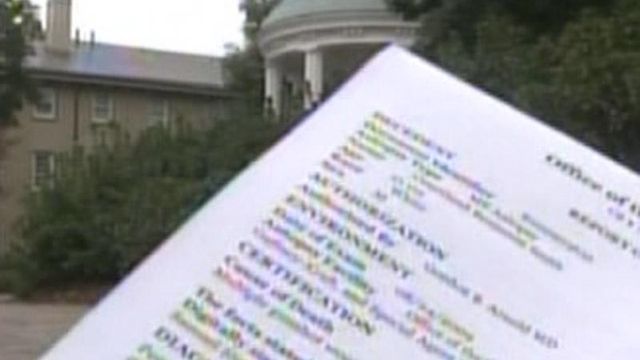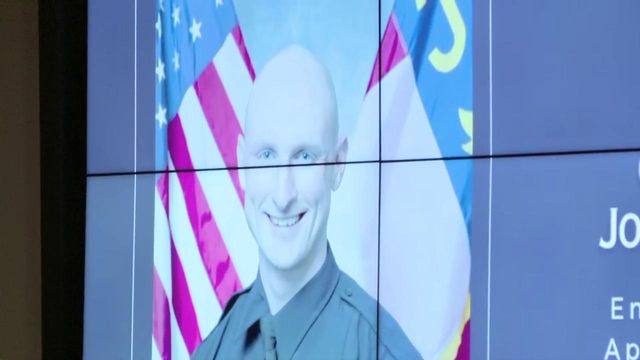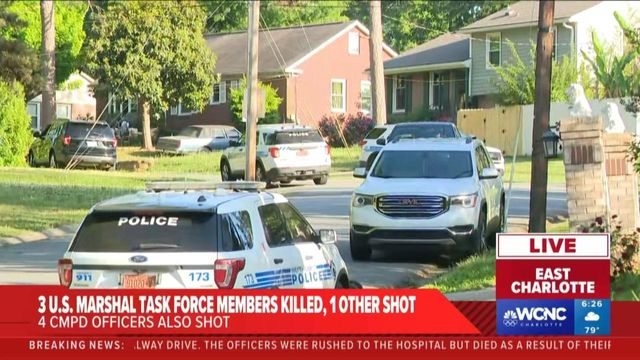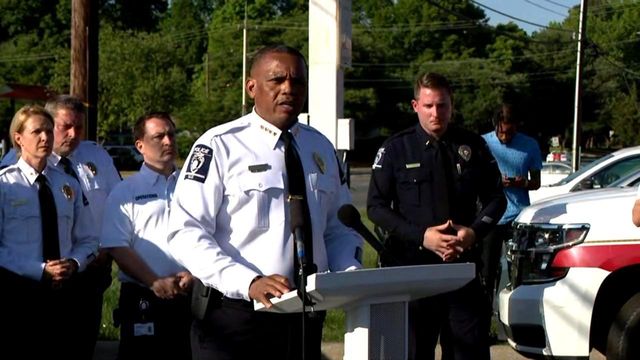Autopsy: Police shot UNC student four times
A University of North Carolina-Chapel Hill student was depressed and had alcohol in his system when police shot him four times during a confrontation along Interstate 85 in August, according to reports by the Guilford County medical examiner.
The medical examiner lists gunshot wounds as the cause of death for Courtland Smith, 21, a junior biology major from Houston, Texas. Alcohol and depression are listed as contributing causes.
Smith had a blood alcohol content level of 0.22 percent and a medical history of depression, according to the report. No drugs were found in his system.
Autopsy for Courtland Smith
Medical examiner's investigation into Courtland Smith's death
On Aug. 23, Smith asked 911 dispatchers for help and told them he was drunk, had a 9-mm pistol and wanted to kill himself. A police report says that Archdale police stopped Smith on I-85 South in Randolph County, and Officer Jeremy Flinchum shot Smith after a confrontation.
The medical examiner narrates that Smith "had commented to friends on D.O.D (day of death) and before about possible suicide ideas."
According to earlier reports, Smith left a fraternity party hours before the shooting.
In a statement released late Thursday, Smith's fraternity brothers said they were "dumbfounded by the wording of the autopsy report."
"We are very surprised by Medical Examiner Dr. Gordon Arnold's comments. We are not sure where he heard that Courtland had discussed suicide with his friends. No one we have talked with has mentioned any such conversations. We are also unaware of any history of depression; to the contrary, Courtland was cheerful and optimistic," the statement from the Beta Chapter of Delta Kappa Epsilon said.
The medical examiner's report says that Smith was alone when police tried to stop him for driving "very fast down I-85 in the early a.m. hours."
Once he stopped for police, Smith got out of his car and "made a suggestive move toward his pocket which police interpreted as a move to get a gun," the report says.
The autopsy says that one bullet struck Smith's left forearm and then entered his lower abdomen. Three others hit his upper abdomen, left thigh and upper back.
Smith's relatives have said their son was unarmed, and the autopsy report lists only the gun belonging to police.
The State Bureau of Investigation is reviewing the shooting, following standard procedure for officer-involved shootings. Flinchum has been placed on paid leave pending the outcome of the investigation.
The medical examiner's reports will be valuable to the SBI as it determines whether the shooting was justified, said Irv Joyner, a law professor at North Carolina Central University.
"The court doesn't require an officer to be absolutely right," he said.
The law requires that an officer feel that his safety or someone else's safety is threatened, Joyner said. Although the number of shots fired could seem extreme, "that alone isn't really significant," he said.
A judge has said police video of the incident did not record the shooting. Instead, investigators will have to rely on medical and forensics reports and statements from officers.
"There are a lot of gray areas," Joyner said.











